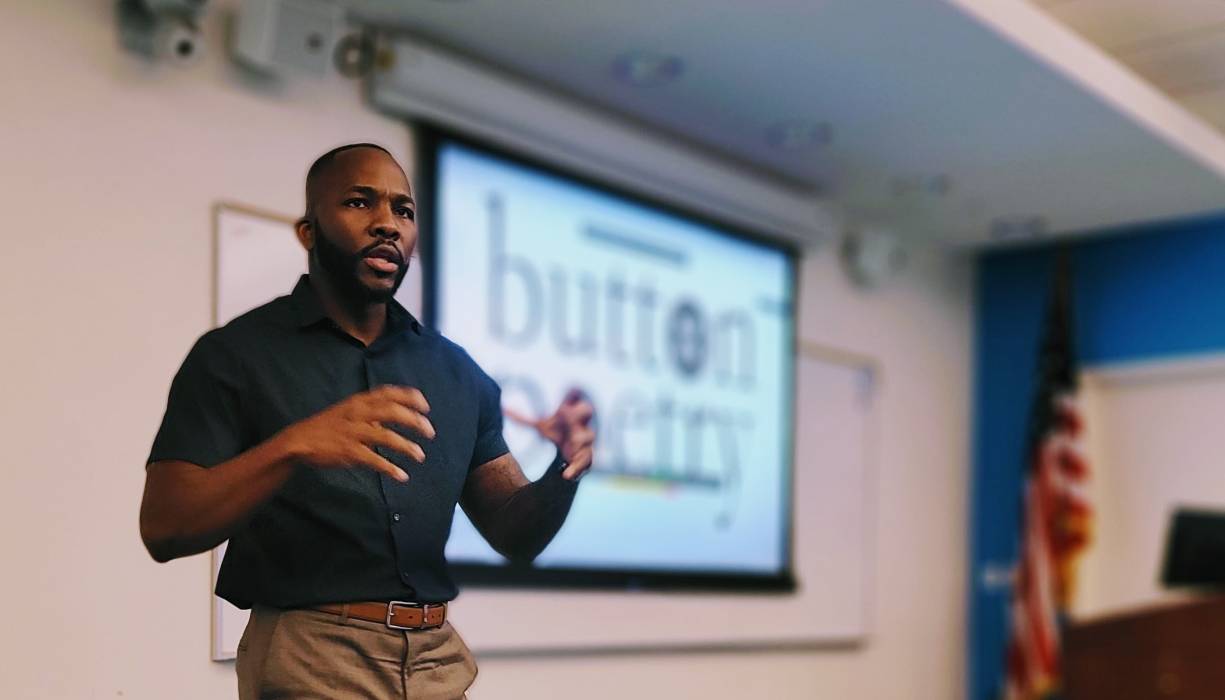You are here
Juneteenth: Why We Celebrate & What it Means
On June 22, the Office of Diversity, Equity and Inclusion hosted a training session about Juneteenth facilitated by Deputy Director for Equity and Racial Justice, chris bijoux, Georgetown University Center for Juvenile Justice Reform.
With a background in epidemiology, bijoux has been able to analyze structural racism as what he described as a virus.
"Racism impacts the most vulnerable, the most isolated, most neglected communities across the country. It's beyond a passion of mine, it's my life's work," he said.
bijoux gave a synopsis of Juneteenth, explaining how the holiday commemorates the date in 1865 when Union General Gordon Granger issued General Order No. 3 which informed enslaved people in Texas that they were free because of the Emancipation Proclamation which was signed two years prior.
Part of General Order No. 3 reads:
"This involves an absolute equality of personal rights and rights of property between former masters and slaves, and the connection heretofore existing between them becomes that between employer and hired labor.
The freedmen are advised to remain quietly at their present homes and work for wages. They are informed that they will not be allowed to collect at military posts and that they will not be supported in idleness either there or elsewhere."
It is important to note, bijoux said, that the wording of the order created an opportunity for a new type of slavery because many formerly enslaved individuals could not read and signed unfair contracts with their new "employers".
While Juneteenth is a cause for celebration, bijoux stressed that the holiday should also be a time to reflect on how far our society still has to go.
"The journey for freedom is not yet over; we still have a lot of work to do. The freedom just to exist and know that your life is not in constant danger because of the color of your skin, your religious background, your sexuality- that freedom scares society," said bijoux. "We witnessed George Floyd gasping for his last breath, a modern-day lynching reminiscent of the thousands whose lives were stolen. These are the contemporary remnants that we experience every day."
bijoux mentioned the fact that the racial conversation in the U.S. was prioritized since the murder of George Floyd but many people and organizations have slowly moved away from it and in some areas, are specifically opposed to discussing racial issues. In his work bijoux will encounter white audiences that express discomfort talking about race, but noted that as a black person, you live and breathe it every day, so it's good practice to get accustomed to being uncomfortable. He encouraged people to keep these conversations going and led the audience through an active listening exercise focused on race.
"We don't always have to agree but if we can listen differently and see through a different perspective maybe that can elevate our understanding of what to do about this racial reality. And all of us have to be a part of it. Only collectively can we do it," bijoux said.
For more information and a recording of this event contact Kevin Lovaincy at klovaincy [at] qcc.mass.edu.

